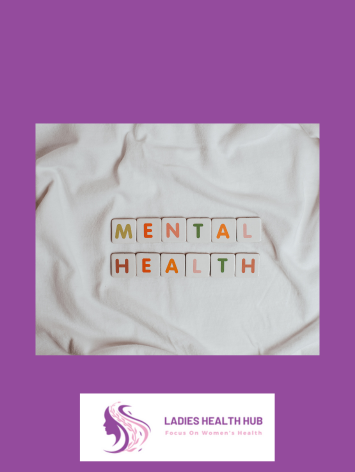
Mental health is a universal concern that affects individuals from all walks of life. However, it is crucial to recognize that women often encounter unique challenges that can significantly impact their mental well-being. In a world where mental health is increasingly recognized as a crucial aspect of overall well-being, it is essential to shed light on the unique challenges faced by women in this realm. Women are not only more susceptible to certain mental health conditions but also experience distinct societal pressures that can impact their emotional well-being.
In this blog article, we will shed light on the mental health struggles faced by women and offer practical tips for navigating this complex landscape.
The Intersection of Gender and Mental Health:
- The societal expectations placed on women and their impact on mental health.
- Exploring the prevalence of mental health disorders among women.
- The influence of biological factors on women’s mental well-being.
Cultural and Social Factors Shaping Women’s Mental Health:
- The role of gender stereotypes and their impact on self-esteem.
- Cultural pressures and societal expectations on women’s roles.
- The stigma surrounding mental health and its unique effects on women.
Life Transitions and Mental Health Challenges:
- Mental health challenges during adolescence and the pressures of societal standards.
- The impact of reproductive health on women’s mental well-being.
- Menopause and its effect on mental health.
Addressing Mental Health Issues Specific to Women:
- Building a support network: Connecting with other women who share similar experiences.
- Seeking professional help: The importance of therapy and counseling.
- Practicing self-care: Nurturing physical and mental well-being through healthy lifestyle choices.
Empowerment and Advocacy:
- Breaking societal norms: Encouraging women to challenge traditional expectations.
- Overcoming stigma: Promoting open conversations about mental health.
- Advocating for policy changes: Ensuring access to mental health resources for all women.
Unique Mental Health Challenges Faced by Women:
Postpartum depression:
Many women experience postpartum depression after giving birth, which can be attributed to hormonal changes, sleep deprivation, and the challenges of adjusting to motherhood.
Eating disorders:
A disproportionate number of women are affected by eating disorders like anorexia nervosa and bulimia, often influenced by societal pressures to attain a certain body type.
Trauma and violence:
Women are more likely to experience trauma, such as sexual assault or domestic violence, which can have severe and long-lasting effects on their mental well-being.
Double burden syndrome:
Juggling multiple roles as caregivers, professionals, and homemakers can lead to chronic stress and burnout, affecting mental health.
Empowering Tips for Women’s Mental Health:

Prioritize self-care:
Encourage women to make time for activities that bring them joy and relaxation, such as exercise, hobbies, and self-reflection.
Cultivate a support system:
Encourage women to seek connection and support from friends, family, or support groups, providing a safe space to share their experiences and emotions.
Challenge societal expectations:
Advocate for women to question and redefine societal expectations, empowering them to embrace their authentic selves and reject harmful stereotypes.
Seek professional help:
Highlight the importance of seeking professional assistance when needed, whether through therapy, counseling, or medication, to address mental health concerns effectively.
Organisations that Carter for Women’s Mental Health:
National Alliance on Mental Illness (NAMI) Women’s Mental Health:
NAMI offers resources specifically addressing women’s mental health issues, including information on common mental health conditions, treatment options, and support networks. Website: www.nami.org
Postpartum Support International (PSI):
PSI provides support, resources, and education for women experiencing perinatal mood and anxiety disorders, including postpartum depression. They offer a helpline, online support groups, and a directory of specialized mental health providers. Website: www.postpartum.net
Women’s Mental Health Network:
This global network focuses on promoting women’s mental health and advancing gender-responsive approaches in mental healthcare. They provide resources, research, and advocacy initiatives to address the unique mental health needs of women. Website: www.womensmentalhealthnetwork.org
Women’s Health America offers a range of resources and articles on mental health topics specifically tailored to women. They cover various issues, including reproductive health, body image, and stress management. Website: www.womenshealthamerica.com
Women’s Mental Health Collective:
This online community provides a supportive space for women to connect, share experiences, and access resources related to mental health. They offer virtual support groups, educational webinars, and a blog featuring personal stories and expert advice. Website: www.womensmentalhealthcollective.com
The National Women’s Health Network (NWHN):
NWHN advocates for women’s health and well-being, including mental health. They provide resources, policy updates, and campaigns to address gender disparities in healthcare and promote mental health equity for women. Website: www.nwhn.org
MHA offers resources and support for women’s mental health, including information on various mental health conditions, self-help tools, and a screening tool to assess mental health concerns. Website: www.mhanational.org.
These organizations can provide valuable information, support networks, and resources tailored to women’s mental health. It’s important to explore their websites and reach out to them for more specific information and assistance based on individual needs and interests.
Key Takeaways:
- Women face unique mental health challenges due to societal expectations, hormonal influences, and gender-specific traumas.
- Sharing personal stories of resilience can inspire and empower women to seek help and prioritize their mental well-being.
- Self-care, building a support system, challenging societal expectations, and seeking professional help are vital steps towards achieving mental wellness.
Women’s mental health is a multifaceted topic that requires attention and understanding. By acknowledging the unique challenges faced by women and providing empowering tips, we can contribute to a society that supports women’s mental well-being. Let us create a world where women can thrive, embracing their individuality and nurturing their mental health with compassion and resilience. Remember, together, we can break down barriers and build a brighter future for women’s mental health.